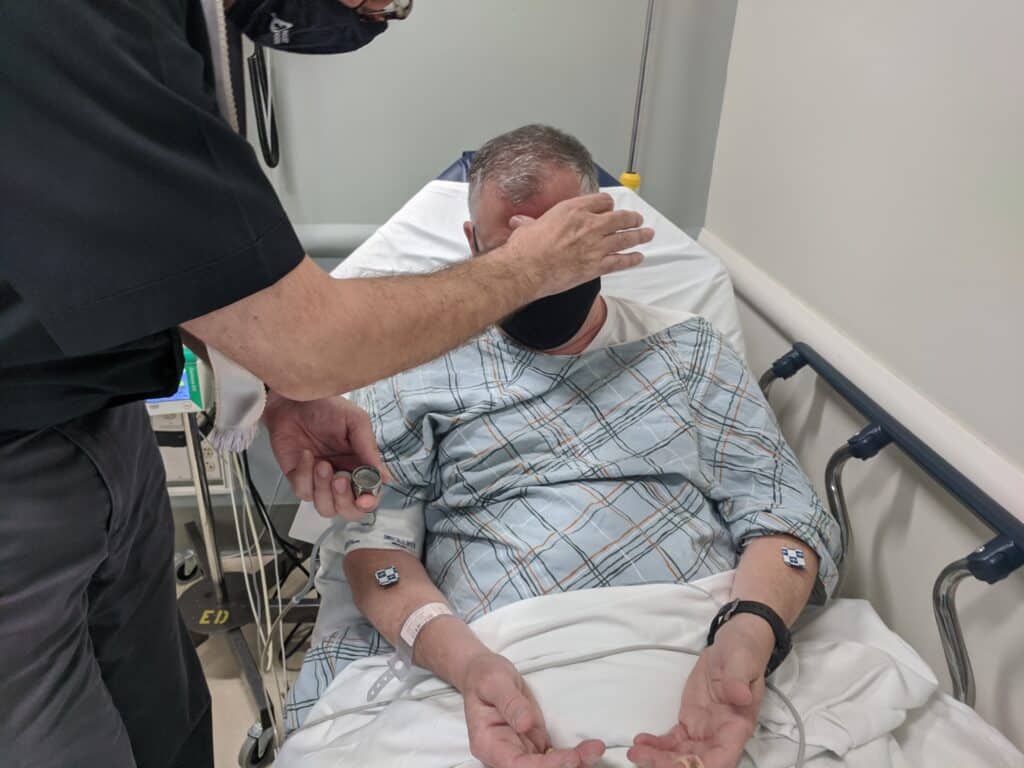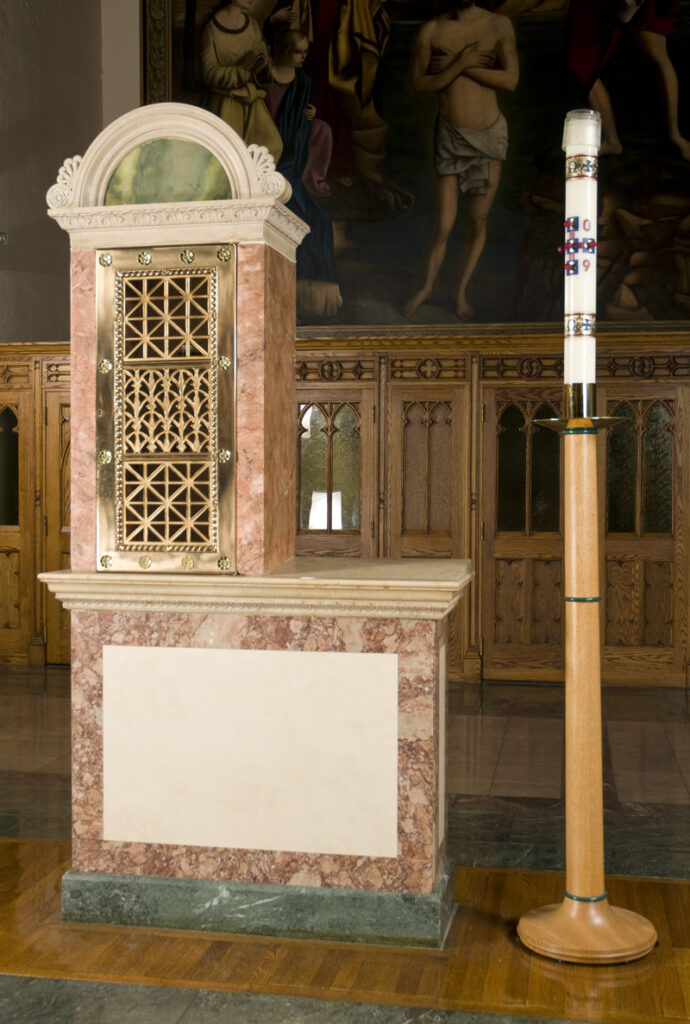Anointing of the Sick
The anointing of the sick is administered to bring spiritual and even physical strength during an illness, especially near the time of death. It is most likely one of the last sacraments one will receive.
A sacrament is an outward sign established by Jesus Christ to confer inward grace. In more basic terms, it is a rite that is performed to convey God’s grace to the recipient, through the power of the Holy Spirit.
Please contact the Parish Center Offices to make an appointment with Fr. Paul Rospond or Rev. Eric Andrews.
The Sacrament’s Institution
Like all the sacraments, holy anointing was instituted by Jesus Christ during his earthly ministry. The Catechism explains, “This sacred anointing of the sick was instituted by Christ our Lord as a true and proper sacrament of the New Testament. It is alluded to indeed by Mark, but is recommended to the faithful and promulgated by James the apostle and brother of the Lord” (CCC 1511; Mark 6:13; Jas. 5:14-15).
The anointing of the sick conveys several graces and imparts gifts of strengthening in the Holy Spirit against anxiety, discouragement, and temptation, and conveys peace and fortitude (CCC 1520). These graces flow from the atoning death of Jesus Christ, for “this was to fulfill what was spoken by the prophet Isaiah, ?He took our infirmities and bore our diseases'” (Matt. 8:17).
The Sacrament’s Effects
“The special grace of the sacrament of the Anointing of the Sick has as its effects: the uniting of the sick person to the passion of Christ, for his own good and that of the whole Church; the strengthening, peace, and courage to endure in a Christian manner the sufferings of illness or old age; the forgiveness of sins, if the sick person was not able to obtain it through the sacrament of penance; the restoration of health, if it is conducive to the salvation of his soul; the preparation for passing over to eternal life” (CCC 1532).


